Alzheimer’s Drugs: Relieving Symptoms vs. Treating the Disease?

For most of the 20th century, doctors had little more than compassion to offer patients with Alzheimer’s. But in recent decades, advances in brain imaging and biomarker testing have allowed scientists to track Alzheimer’s pathology as it unfolds — often decades before symptoms appear. It starts with the slow buildup of beta-amyloid proteins. On their […]
Can Routine Vaccines Lower Your Alzheimer’s Risk?

Bacteria and viruses that cause issues like Herpes, respiratory illnesses like the flu, and even gum disease aren’t just uncomfortable in the moment: In the long term, they appear to increase a person’s risk of one day developing Alzheimer’s disease. Research shows that infections may cause the immune system to go haywire, damaging healthy brain […]
New Research Explains Why Women Are More Vulnerable to Alzheimer’s

Women are twice as likely as men to develop Alzheimer’s disease — but scientists are still trying to understand why. One key reason: Women were historically excluded from medical research. It wasn’t until 1993 that U.S. lawmakers required federally funded studies to include women. Researchers have been working to close that knowledge gap ever since. […]
4 Clinical Trials for Alzheimer’s Prevention

When a snowball rolls down a mountain, it grows bigger and gains momentum, making it progressively harder to stop. Treating Alzheimer’s disease may be challenging because of a similar “snowball effect” in the brain. Alzheimer’s proteins start to build up in the brain as many as two decades before symptoms start, causing damage to the […]
4 Science-backed Ways to Keep Blood Pressure in Check and Lower Dementia Risk

High blood pressure — also called hypertension — affects more than one in six adults worldwide. But because it rarely causes symptoms, about half of the people in this group don’t even realize they have it. That’s a problem, because untreated hypertension raises your risk of heart disease, stroke, and — as researchers are increasingly […]
Can Cannabis-based Drugs Treat Alzheimer’s Symptoms?

As more states legalize cannabis, researchers continue to explore whether compounds found in cannabis could help manage the symptoms of Alzheimer’s disease. While “medical marijuana” is often touted as a treatment for various health conditions, its potential for easing dementia’s behavioral symptoms is still a question mark. As many as half of people living with […]
What’s the Difference Between Leqembi and Kisunla?
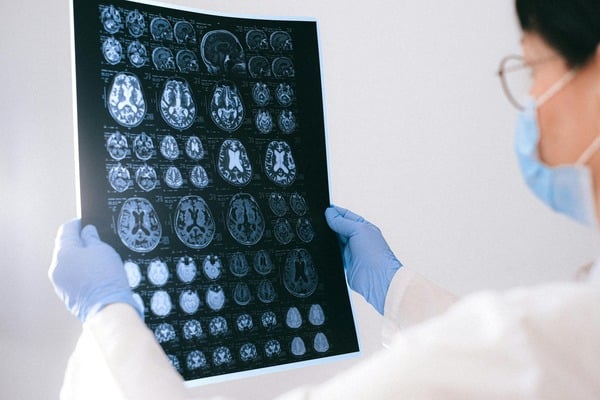
For almost two decades, people with Alzheimer’s disease had no new treatment options. In the 2020s, drugs called monoclonal antibodies received FDA approval for people in the earliest stages of Alzheimer’s disease. The two drugs approved in the U.S. so far — Leqembi and Kisunla — are both infusion-based drugs designed to target beta-amyloid plaques […]
Blood Tests for Alzheimer’s
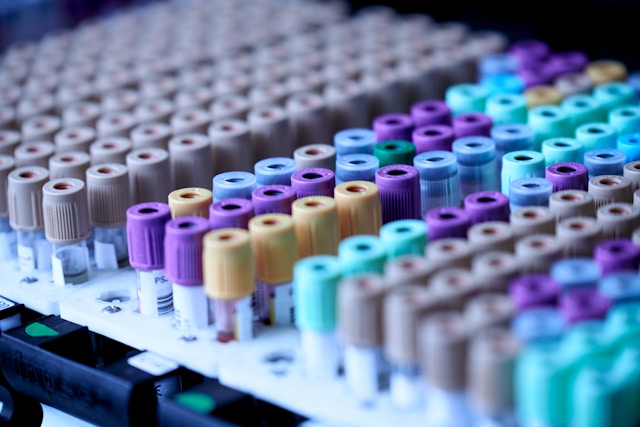
Unlike conditions like high blood pressure or diabetes, there is no quick and easy test to diagnose Alzheimer’s disease accurately. It often takes several years and involves having a specialist review a patient’s medical history, perform a neurological exam, and run blood tests or other diagnostic tests to rule out other conditions — from hormonal […]
Stem Cells for Dementia

Since their discovery in the 1960s, stem cells have captivated our curiosity. Unlike other cells in the body, stem cells are changeable: They can self-renew, and they can turn themselves into different, specialized cell types. Already, stem cell therapies have led to the development of things like bone marrow transplants for cancer patients. And their […]
Neurotech for Treating Alzheimer’s

A new generation of drugs for Alzheimer’s disease are designed to change how the brain works. They do this by latching onto problematic proteins that build up in our neurons. Anti-amyloid drugs, like Leqembi and Kisunla, stick to beta-amyloid protein plaques in particular, and help the brain get rid of them. Meanwhile, drugs for Alzheimer’s […]
Looking Ahead – New Alzheimer’s Drugs that Could Be Approved Soon

Last year, regulatory agencies in the U.S., Japan, China, and the U.K. all approved Eli Lilly’s new Alzheimer’s anti-amyloid drug Kisunla. Based on the status of drugs in the development pipeline, we don’t expect there to be another new Alzheimer’s drug in 2025. But, there are several promising drug candidates with Phase 3 trials wrapping […]
Looking for Vision Loss to Diagnose and Prevent Dementia
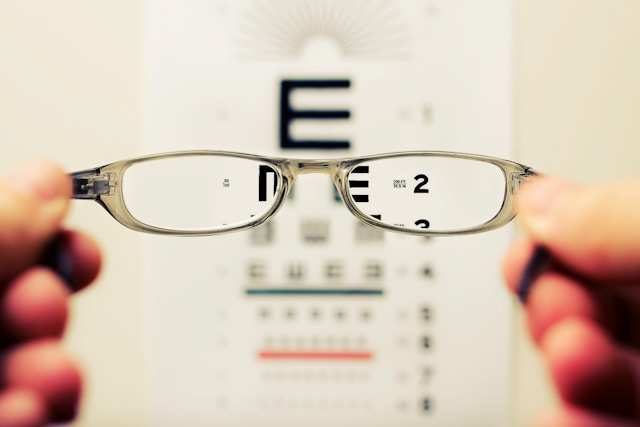
The eyes are the only part of the nervous system that we can see directly, without invasive tools or expensive imaging. And this makes them like windows into the brain. Scientists are learning that vision tests and simple retinal scans can reveal important data about brain health — data that could be key to the […]
Four Dementia-Friendly Activities for the Holidays

The holidays are one of the few times of the year that the whole family gets together. For people who have a loved one with dementia, it can be challenging to plan activities to keep your loved one included and engaged. Here are some fun, expert-vetted ideas to ensure a fun and memorable experience for […]
Equine Therapy for Dementia

Corliss Wallingford was inspired to start a therapeutic horse riding center in her home state of Virginia after her daughter, who is non-verbal, joined a similar program. For 19 years, Simple Changes Therapeutic Riding Center in Mason Neck, not far from Washington, D.C., has offered what its co-founder describes as “science-backed equine-assisted activities” to people […]
Editing Genes to Beat Alzheimer’s
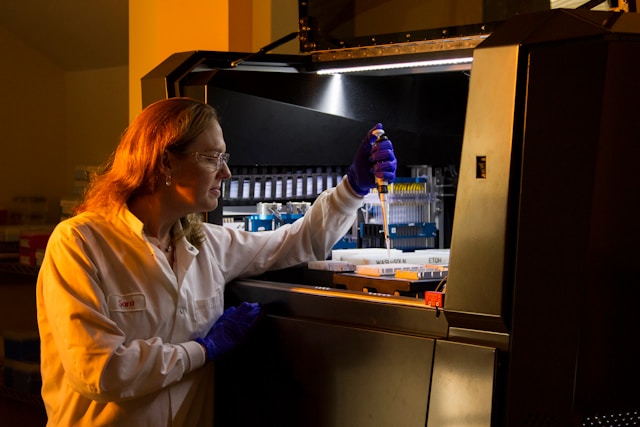
The underlying cause of Alzheimer’s disease is unknown, but scientists have lots of reason to believe that people’s genetics affect how susceptible they are: Some genes multiply risk, while others appear to be protective. And until recently, scientists didn’t have the tools to add, subtract, or edit genes involved in diseases like Alzheimer’s. That’s changing: […]
Is It Normal Aging or Dementia?

Every morning, you go for a run around the neighborhood. Today, as you’re on your way home at the end of the run, you can’t remember whether to turn left or right. Is this an age-related memory lapse or the first signs of something more serious? While many people experience occasional memory lapses as they […]
Creative Ways to Cope with Cognitive Decline

After receiving an Alzheimer’s diagnosis, former university chancellor Rebecca Chopp picked up painting, while acclaimed flutist Eugenia Zukerman continued to play music and picked up writing to make sense of her journey. Creative activities help those with cognitive decline and their caregivers reduce stress and stay mentally engaged. Here’s how these hobbies are helping people […]
What If Your Smartphone Could Detect Cognitive Decline?

Written by Being Patient Detecting Alzheimer’s early is crucial because it allows people to get new treatments, participate in clinical trials, and make positive lifestyle changes. We now know that our voice might be the first thing that changes before any other symptoms. And so voice biomarkers, as an early diagnostic tool, might be coming […]
What Is Caregiver Stress and How Can You Prevent It?

Written by Being Patient When people take on the role of caregiving for a loved one with dementia, they may feel unsure how to cope with the sudden changes in their life. In the U.S., only about a quarter of dementia caregivers are from outside the circle of family and close friends, which can be […]
Can Skipping the Flu Shot Impact Your Dementia Risk?

Written by Being Patient As people age, they tend to become more vulnerable to infections like influenza. Research shows that getting one’s flu shot can protect against more than just the flu. In the last decade, scientists have found strong links between viral infections and neurodegenerative disease. Respiratory infections like the flu may increase the […]
Alzheimer’s May Be Preventable: Here’s How

Written by Being Patient Every year, more than 900,000 Americans are diagnosed with Alzheimer’s. Yet, research shows that as many as 40 percent of dementia cases could be prevented or delayed through lifestyle changes and managing other health conditions. While there is no guarantee that Alzheimer’s can be avoided altogether, neurologists say there are a […]
When Is It OK to Correct Someone With Dementia?

Written by Being Patient What do you do when your loved one with dementia says things that aren’t true? Many people have good intentions when they correct their loved one, but experts say this approach isn’t always helpful. According to dementia care expert Teepa Snow, a fellow of the American Occupational Therapy Association, if someone […]
Eli Lilly’s Kisunla for Alzheimer’s Hits the U.S. Market
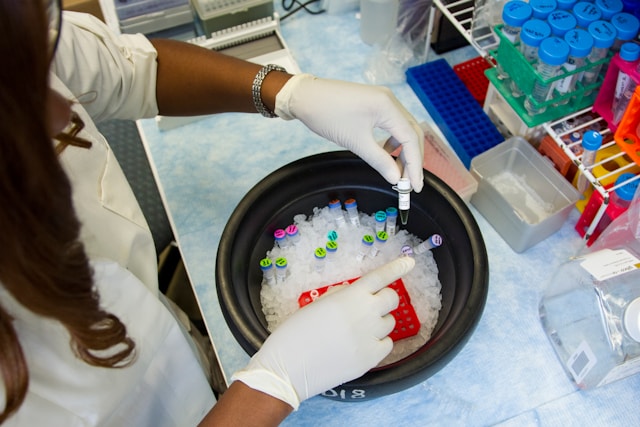
Written by Being Patient The FDA approved Eli Lilly’s disease-modifying drug Kisunla (generic name donanemab) on July 2nd, a few weeks after the drug was unanimously recommended for approval by a committee of independent advisors to the FDA. Kisunla joins Leqembi as one of two Alzheimer’s monoclonal antibody drugs approved by the FDA in the […]
Do Statins Cause Dementia?

Written by Being Patient About one in four Americans over 40 take drugs called statins, which lower levels of cholesterol, to help prevent cardiovascular disease. You might recognize some of these drug names if you or someone you know has high cholesterol: Lipitor, Lescol XL, Altoprev, Livalo… These statins prevent cholesterol build-up in blood vessels […]
3 Reasons Black Americans Have Higher Dementia Risk

Written by Being Patient Experts estimate that, by 2030, more than 8 million Americans will be living with Alzheimer’s disease or another form of dementia. Black Americans will make up a disproportionate amount of these cases: They are twice as likely to develop these diseases than their white counterparts. Despite ongoing research, scientists still can’t […]
Are We Flushing Away the First Signs of Alzheimer’s?

Written by Being Patient There are a few new drugs out there that can actually slow down Alzheimer’s disease. But, by the time around half of Americans get their diagnosis, it’s too late to intervene. Scientists hope a simple new kind of test could make it possible to catch Alzheimer’s while there’s still time to […]
Summer Travel: How to Plan a Vacation Around Dementia

Written by Being Patient Just because your loved one has dementia doesn’t mean you have to stop taking trips or vacations together. While it may make travel more daunting, research supports the benefits of outdoor activity for people living with dementia — and experts are offering guidelines to make planning an outdoor vacation manageable, safe, and […]
The Link Between Seizures and Dementia

Written by Being Patient As people age, changes to their blood vessels caused by high blood pressure, cholesterol, or other cardiovascular risk factors, damages the brain and predisposes it to a variety of different diseases including dementia and epilepsy. In the U.S., epilepsy affects roughly three million adults and is a disorder characterized by recurrent […]
3 Things You Should Know About Alzheimer’s Blood Tests

Syndicated by Being Patient The internet is abuzz with claims that blood tests could predict dementia 15 years out or even spot Alzheimer’s before symptoms set in. The gold-standard methods for diagnosing Alzheimer’s up to now have been lumbar punctures and PET brain scans, but they can be uncomfortable, expensive, or hard to access. That’s […]
What’s the Difference Between Alzheimer’s and ‘Dementia’?
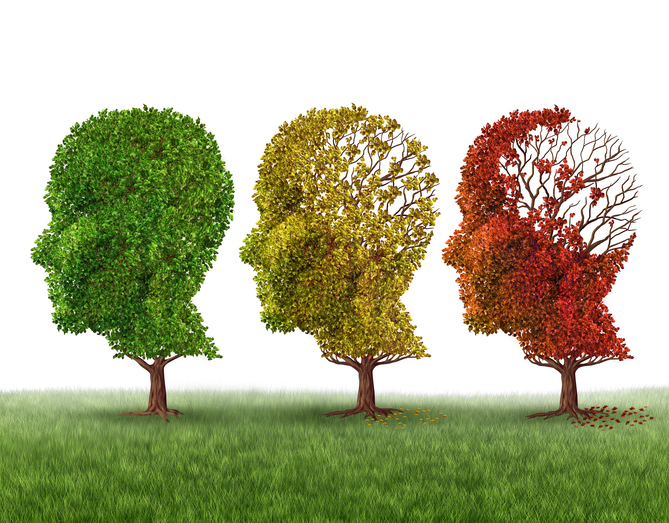
While many people use Alzheimer’s and dementia interchangeably, these don’t mean the same thing. So what exactly is the difference? Dementia is a set of symptoms: memory loss, problems with language, changes in behaviors, and difficulties with thinking or planning. A number of neurodegenerative diseases come with this set of symptoms. The most common is […]
Can You Reverse Mild Cognitive Impairment?

Feeling fuzzy lately — fuzzier than usual? Nearly one in five Americans over the age of 60 experience subtle downturns in memory, thinking, and cognition. Doctors refer to this downturn in cognitive abilities as mild cognitive impairment (MCI). MCI can sometimes turn into something more serious. One in six people living with MCI eventually go on […]
Aging Doesn’t Always Mean Cognitive Decline

Many people believe that cognitive decline is an inevitability as we get older — or that dementia is just a normal part of aging. But in fact, while age is perhaps the most significant risk factor for cognitive decline, this isn’t the case for everyone. Many people stay sharp even into their 70s, 80s, 90s […]
What Factors Affect How Fast Dementia Progresses?

Every year, 10 million people worldwide are diagnosed with some form of dementia. Some people can live fulfilling lives for decades after a diagnosis, managing symptoms through combinations of customized care, medications, and non-drug interventions. Other people may have a different experience, and a steeper decline that takes place over just a few years. Exactly […]
Could an Infection Lead to Alzheimer’s?

Alzheimer’s researchers make the case that infections as common as gingivitis could be the disease’s root cause. In the brains of people with Alzheimer’s disease, beta-amyloid plaques — sticky globs of protein — build up and get in the way of neurons, eventually causing them to die off. For decades, scientists have focused on developing […]
What Can Puzzles and Brain Training Games Do for Your Memory Skills?

Exercise helps build muscle and keep the body healthy. Do games and puzzles have a similar effect on the brain? Surprisingly, experts say, some actually do. There are billions of cells in the brain sending electrical signals to one another. If a series of brain cells always fires in sequence, those cells form a strong […]
3 Things That Might Help “Superagers” Avoid Alzheimer’s

Age is the biggest risk factor for Alzheimer’s. Approximately 10 percent of people over the age of 65 develop the disease. And for most of us, getting older is something we just can’t avoid. As global public health experts expect dementia cases to triple by 2050, scientists are racing to find ways to stop the […]
What is TDP-43 and How Does It Contribute to Alzheimer’s?
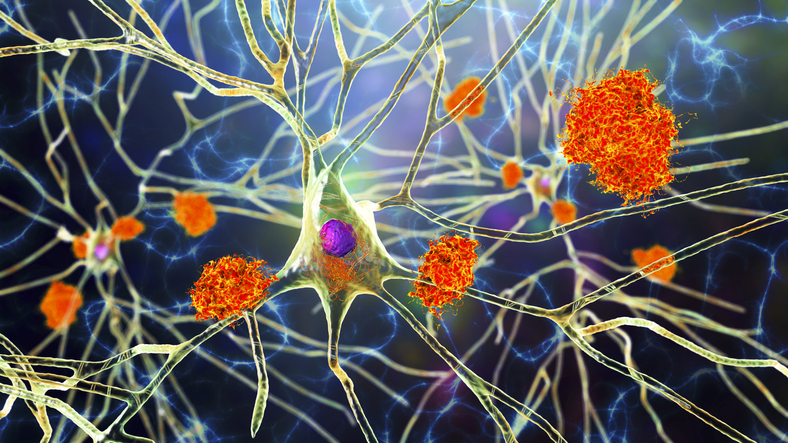
Scientists have linked the progression of Alzheimer’s to the buildup of specific proteins in the brain. One of the best-known of these Alzheimer’s biomarker proteins is called beta-amyloid, which builds up in the brain in a thick plaque that gets in the way of neurons, eventually causing them to die. There are a now a […]
Indigenous Amazonians Don’t Develop Alzheimer’s – Why?

Is there any surefire way to prevent Alzheimer’s diease? Data published in The Lancet found that as many as 40 percent of dementia cases are preventable by addressing modifiable, lifestyle-related risk factors, such as high blood pressure and obesity. And yet, there are some people who, even though they follow every science-backed suggestion about lowering […]
What Causes Dementia? Debunking Four Myths

The stigma surrounding dementia has decreased in recent years, but there are still a lot of myths and misinformation making the rounds online. Dementia is a condition affecting more than 55 million people worldwide. It causes problems with language, memory, and cognition. Scientists still don’t fully understand what causes dementia, but they have safely ruled […]
Cancer Appears to Reduce Dementia Risk – Here’s Why

People diagnosed with cancer are less likely to develop dementia. This strange relationship between these two diseases may help reveal a dementia treatment. Dementia is increasingly prevalent, but there certain lifestyle changes may reduce your risk. For example, eating a Mediterranean-style diet and regular exercise are shown to lower a person’s chances of developing Alzheimer’s […]
How to Manage Alzheimer’s Symptoms

Symptom management in Alzheimer’s helps people remain independent for longer. Alzheimer’s disease is a progressive neurodegenerative condition affecting more than one in every nine Americans over 65. With strategic management of Alzheimer’s symptoms — which can include a combination of FDA-approved treatments, non-drug interventions and approaches to Alzheimer’s care — people may live relatively independent […]
What Causes Dementia? Debunking Four Myths
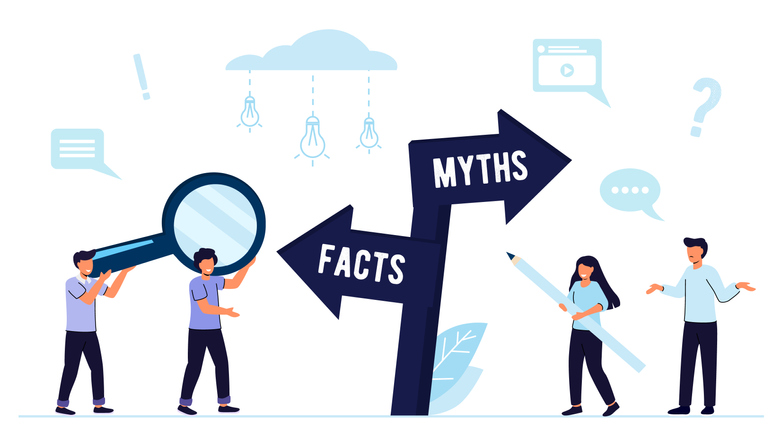
Dementia is a complex condition with no singular cause — it doesn’t stem from one single lifestyle decision, and it isn’t an inevitable symptom of aging. But, there’s plenty of misinformation online claiming otherwise. Take these examples: Alzheimer’s is a condition affecting more than 30 million people worldwide. It causes problems with language, memory, and […]
Aging Makes Us More Vulnerable to Financial Scams: Here’s How to Spot Them

Your phone rings out of the blue. It’s an unknown number. Picking up, you hear a gruff, aggressive voice on the other end. They tell you they’re from the IRS, your taxes are overdue, and you will be arrested if you don’t pay up in the next six hours. This is a typical script for […]
The Link Between Depression and Dementia

More than 60 percent of people with dementia are also diagnosed with depression. There’s a lot of overlap in the symptoms between these two conditions, and some studies indicate that depression could even speed up the brain’s aging. Scientists and clinicians believe understanding this dementia-depression link could help treat both diseases. Is it dementia […]
Treating Diabetes Means Lowering Risk of Dementia

More than one in four adults over the age of 65 develops diabetes. This condition damages the pancreas, making it hard for the body to control blood sugar. Because blood sugar plays a key role in powering the brain, diabetes and brain health issues, including Alzheimer’s and other forms of dementia, have some serious overlap. […]
When a Fall is a Red Flag for Cognitive Decline

Frequent falls may be a sign of something more serious. Cognitive testing could help rule out brain health problems. As people age, they may begin to lose muscle mass and bone density. It might make familiar physical activities substantially more challenging. For adults over the age of 65, these changes could lead to falls — and […]
How Much Sleep Do You Need for Brain Health?

Experts share why everyone might have different sleeping needs, along with guidance on overcoming insomnia. Do you know if you’re getting enough sleep? Scientists have analyzed the sleeping habits of millions of individuals, and found that sleep is important for maintaining brain health. Getting a sufficient amount of sleep even appears to reduce the risk […]
3 Possible Reasons Women Have Higher Alzheimer’s Risk Than Men

Research has established that women are twice as likely to develop Alzheimer’s. But, despite study after study into this sex-based disparity, scientists are still working to understand why. So far, research has shown that women have a few risk factors and warning signs that differ from men. Could these risk factors — like genes on […]
How to Reduce Dementia Risk By Lowering Cholesterol

“A lot of the new thinking is, if it’s good for your heart, it’s good for your brain,” says Dr. Gregory Jicha, a neurology professor at the University of Kentucky. “That’s a simple way for us to remember: things like cholesterol and exercise that prevent heart disease also prevent wear and tear on the brain.” […]
Three Ways to Help Dementia Caregivers Avoid Burnout

Helping the Helpers: How Caregivers and Care Partners Can Stay Healthy and Avoid Burnout When a person is diagnosed with dementia, family members are often the first to step up and help. Across the U.S., only about a quarter of dementia caregivers are from outside the circle of family and close friends. Studies show that […]
Why is this new generation of Alzheimer’s drugs such a big deal?
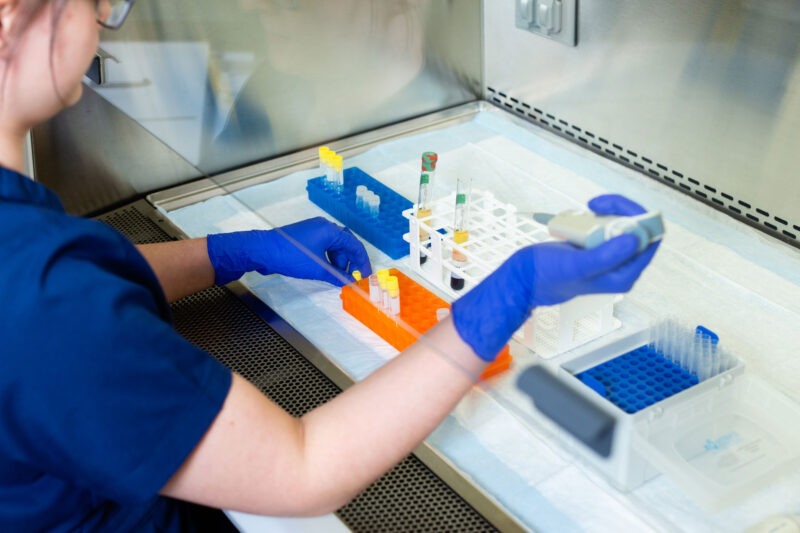
Despite decades of study, the underlying cause of Alzheimer’s continues to evade scientists. Until recently, the only drugs available to patients targeted the symptoms of the disease, rather than underlying pathology. So, what’s the difference between treating Alzheimer’s symptoms and modifying the disease? The FDA approvals of the anti-amyloid drugs Aduhelm and Leqembi marked significant milestones in Alzheimer’s drug development. These two drugs […]
A Roadmap for Couples Facing a Dementia Diagnosis In NYC

The Memory Advocate Peers program supports couples newly diagnosed with dementia. What should you do when your loved one is newly diagnosed with Alzheimer’s? A new peer support program hopes to help by pairing those who are new to the community with experienced care partners so they can learn about the right resources and support […]
K2 Medical Research Recruiting for Trial of Alzheimer’s Drug Leqembi

Alzheimer’s anti-amyloid drug Leqembi (generic name lecanemab) was granted accelerated FDA approval last month. But, trials are still ongoing to verify the drug’s benefits to asymptomatic people at risk of developing Alzheimer’s. Presently, K2 Med is enrolling participants for the AHEAD 3-45 trial. But, trials are still ongoing to verify the drug’s benefits to asymptomatic people at […]
What Role Do Amyloid Plaques Play In Alzheimer’s?
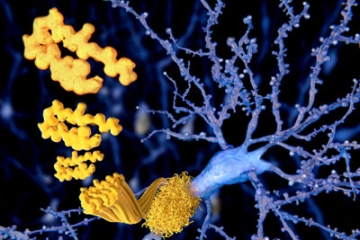
Amyloid plaques are a hallmark of Alzheimer’s disease. The interesting thing is, not everyone who develops these plaques gets Alzheimer’s. Answering this question could reveal new clues about the underlying cause of the disease. Scientists don’t know what causes Alzheimer’s. But the brain’s of everyone with Alzheimer’s do share a hallmark: clumps of toxic beta-amyloid […]
Brain Power: Understanding Bioenergetics

The brain’s power generators, mitochondria, could hold the key to Alzheimer’s disease. Understanding them better is also shedding light on the potential of diabetes drugs in treating Alzheimer’s. Despite accounting for just two percent of our body weight, the brain consumes 20 percent of the body’s energy. Driving energy production to fuel the brain are […]
Alector & Abbvie’s Alzheimer’s Phase 2 Trial is Recruiting

K2 Medical Research is recruiting for a Phase 2 trial of Alector and Abbvie’s new experimental Alzheimer’s drug, AL002. K2 is screening possible trial participants for a Phase 2 clinical trial of an Alzheimer’s drug called AL002. This antibody drug is designed to activate a receptor in the brain called TREM2. TREM2 is important because […]
Dogs for Dementia – Real Ones, and Robots

Long-term care homes are looking for new ways to improve the lives of their residents. Using dogs and dog robots, scientists have found an unlikely intervention that could reduce psychiatric symptoms in dementia. There’s a good reason that cute dog videos regularly reach millions of views on YouTube or Facebook. Anyone with a dog will […]
Coffee & Alzheimer’s Disease – What’s the Verdict?

By: Simon Spichak With all the seemingly contradictory headlines, it is hard to tell whether coffee is good or bad for you. This article explores the issue. There’s nothing like the first cup of coffee in the morning to jumpstart the day. Because the average American drinks more than three cups of coffee every day, […]
Eli Lilly’s Donanemab Prevention Trial is Recruiting

K2 Med is recruiting for a new Phase 3 trial for Eli Lilly’s new Alzheimer’s drug donanemab. By: Simon Spichak K2 is screening possible trial participants for a Phase 3 clinical trial of an Alzheimer’s drug called donanemab. Donanemab is designed to target beta-amyloid plaques which clump in the brain and lead to inflammation that […]
Why Are Musical Memories the Last to Go in Alzheimer’s?

When it comes to music and the brain, there is a very special link. By: Simon Spichak When Tony Bennett’s family announced last February that he had Alzheimer’s disease, few could have guessed that the 94-year-old singer would still hold two major concerts — performing dozens of songs for huge audiences and recalling all the […]
Alzheon’s Experimental Alzheimer’s Pill Recruiting for Trials

K2 is recruiting for a new Phase 3 trial for Alzheon’s new drug, which aims to be the first oral disease-modifying therapy for Alzheimer’s. Join A Study Recently, K2 started screening possible trial participants for a Phase 3 clinical trial of a new Alzheimer’s drug. This drug, called valiltramiprosate, is designed to prevent protective forms of […]
Why can’t the brain regrow neurons?

Alzheimer’s kills brain cells. Can we help the brain make new ones? By: Simon Spichak If you scrape your knee or break a bone, new cells repair the damage before you even know it. Other organs in the body are even better at regrowing themselves: The cells lining the gut regenerate every three to four […]













